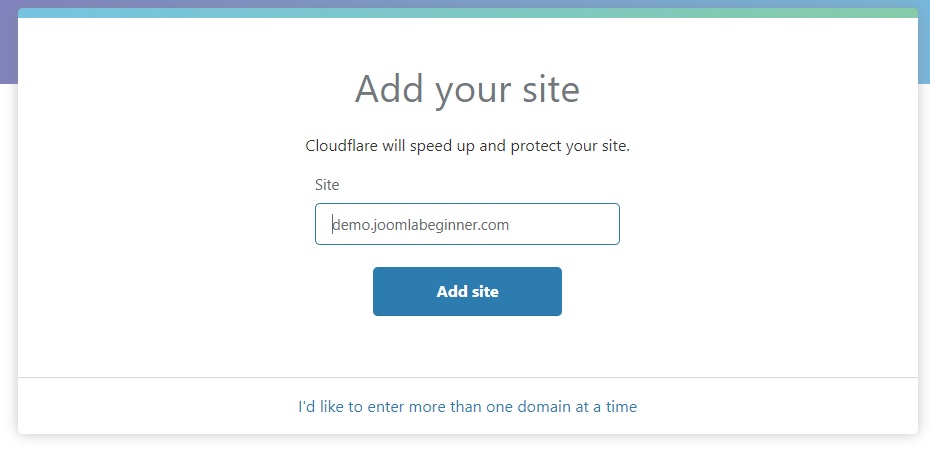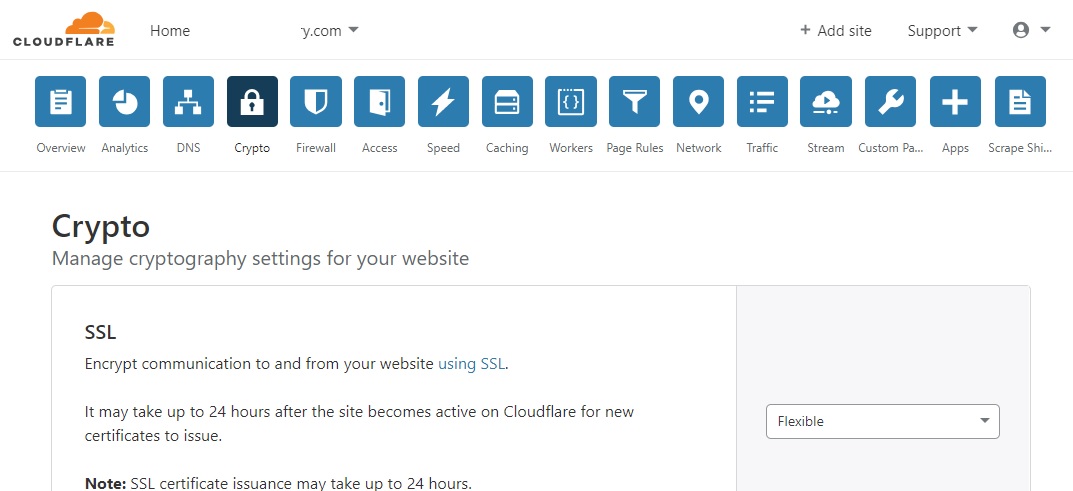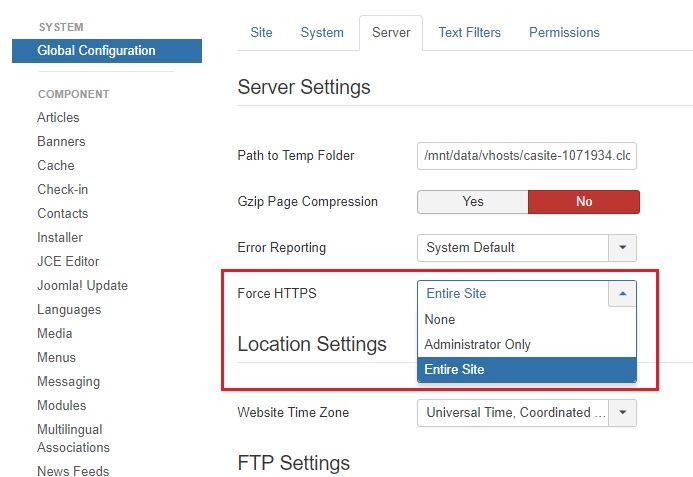SSL Certificates or Secure Sockets Layer Certificates are small data files. These files digitally bind or combine a cryptographic key to an organization’s details. When it is installed on a Web Server, it activates or launches both the padlock and the https protocol. This allows it to secure the connections from a web page to a browser. Its function is as such that it can be used to secure credit card transactions and data transfer logins.
Moreover, these days, it is also being increasingly used in order to secure social media sites and in order to enable the securing of browsing in social media sites.
Why You need an SSL Certificate
The primary reason why SSL is employed is to stay sensitive data sent across the net encrypted in order that solely the meant recipient will access it. This can be vital as a result of the knowledge you forward the net is passed from pc to pc to induce to the destination server. This protects it from hackers and identity thieves.
A correct SSL certificate conjointly provides authentication. Any of those computers may faux to be your web site and trick your users into causing them personal data. It’s solely doable to avoid this by obtaining an Associate in Nursing SSL Certificate from a Secure SSL supplier. You’ll use our SSL Wizard to check SSL suppliers that area unit enclosed in most internet browsers.
SSL suppliers also will offer you a trust seal that installs additional trust in your customers.
Types of SSL Certificates
There are mainly 3 types of SSL Certificates:
- Domain valid certificates (DV),
- Organization valid certificate (OV) and
- Extended Validation certificates (EV).
Domain Validated (DV)
A Domain Validated certificates is the one that includes validated identifying information limited to the domain where the website locates only. On every correct validation of these certificates; a padlock icon is being displayed on the browser. The structural data related to these certificates is not specific and hence are not supposed to be used in business functions. However; if we talk about the affordability; the documents are remarkably cheaper to purchase and can be easily used on public websites.
Organization Validated (OV)
If someone wants to have instant identity confirmation and strong SSL protection for your website; Organised Validated Certificate is just the right option to choose one. Along with providing a step up credibility over domain; it also helps the users in activating the browsers padlock and https as well. From building up your corporate identity to providing the customers with an extreme level of security, there are various things that; organized validated certificates can do for you.
Extended Validation (EV)
Only an Extended Validation Certificate is the highest level of SSL certification that brings up a level of trust and security among users. Due to the presence of interactive and easy to use interface; these certificates are being used by one of the major organizations of the world. With the increasing demand for Extended Validation Certificates in the market; these, however, have become a necessity now to offer an extended level of security. The certificates are being designed to provide you with encryption and data integrity depending upon the display and standard of identity verification over browsers.
Difference Between Paid and Free SSL Certificates
| Free SSL Certificate | Premium SSL Certificate |
|---|---|
| Free SSL certificates solely go with a Domain/website Validation (DV) possibility. | Paid SSL certificates do go with OV and EV choices. |
| Free SSL certificates provided by in style CAs is issued for 30-90 days. | Paid certificates, they will be issued for an amount of 1-2 years. |
| Free SSL certificate doesn’t have any warranty. | Paid SSL certificates have the warranty. |
Major SSL Certificate Provider
Comodo
Comodo is one among the most important SSL certificate suppliers, providing an economical approach for tiny and medium-sized online businesses to shield client transactions. Comodo SSL certificates offer extra options and tools.
GeoTrust
GeoTrust is claimed to be the second largest digital certificate supplier worldwide. Providing SSL certificates in over a hundred and fifty countries. GeoTrust True website Seals on the idea of the amount of biometric identification.
DigiCert
DigiCert provides encryption solutions for websites and Internet of Things devices. The DigiCert SSL certificates square measure trustworthy by most of the mail systems, internet browsers, and mobile devices.
GlobalSign
GlobalSign, the SKI solutions provider, enables businesses of all sizes to conduct secure online communications. Trustworthy by all major browsers, applications, and devices, GlobalSign problems SSL Certificates with Secure website Seal.
Symantec
Symantec SSL Certificates secure your website with up to 256-bit encryption. It delivers the SSL Certificates with the foremost recognized trust seal- Norton Secured Seal.
Pros & Cons of using SSL Certificates
Pros: Here are some great features and pros about the SSL certificate.
- Trust – If you get associate degree electron volt certificate that shows the inexperienced address bar within the browser, and once they recognize you’re taking their security seriously, they’re planning to be appreciative.
- Verification – one among the simplest things concerning putting in associate degree SSL certificate on your server is that it guarantees your guests you actually square measure whom you say you’re.
- The integrity of knowledge – to boot, with SSL, you’ll guarantee the integrity of knowledge.
- Google and SEO – you have got to require into thought the recent announcements by Google that they’re planning to be mistreatment whether or not or not a server uses SSL as a ranking signal.
Cons: Here are some things which make it a little weak.
- Cost of Certificate – it’s attainable to urge a free SSL certificate, however, this is not suggested for tons of reasons. However, after you contemplate the supplementary level of security, the value isn’t extremely preventive for many websites.
- Mixed Modes – If your SSL implementation isn’t set up properly and you continue to have some files being served via hypertext transfer protocol instead of HTTPS, this could be confusing to some web site guests.
- Proxy Caching – Another attainable drawback is that if you have got a fancy proxy caching system setup on your internet server. Encrypted content isn’t planning to be able to be cached.
- Mobile – once SSL was 1st enforced, it absolutely was meant for internet-based mostly applications. It will generally be a pain to setup and may need changes to in-house code or shopping for further modules from application vendors.
What all does an SSL Certificate contain?
An SSL Certificate contains the following information:
- It contains the certificate’s holder name,
- The certificate’s serial number
- Its expiration date,
- A copy of the certificate holder’s public key
- And the digital signature of the certificate issuing authority.
One must always try and go for a trusted and verified SSL provider that is recognized by other browsers, devices, and operating systems as a trusted authority, which issues SSL Certificates.
Secondly, one needs to choose the kind of SSL Certificate he or she ideally wants to go for. In this process, some SSL Certificates will require more background checks and verification as compared to others.
How to Install SSL with Cloudflare
Cloudflare is a web security & performance company and CDN provider which now also provide your SSL certificates as well. This is the easiest and free method to get an SSL certificate for your Joomla website.
So, if you don’t have an account on Cloudflare.com, Register for it now.
Add your website to Cloudflare
Once you get a free account, now add your website to Cloudflare account. Find Add Site button and follow the wizard. It’s not necessary to add “www” to the domain.
Once you added, it will scan your domain’s DNS records. It will hardly take 60 seconds. Once it’s done, click on Next button.
- Here you have to choose the plan. If you don’t want to go with a pro plan, you can choose the free one and proceed further.
- You will see a list of available DNS records if there will be any. If there are any additional records you’d like to add, you can add them here. After you’ve reviewed your DNS records, click Continue.
Change your Nameservers
Now, you have to change your nameservers with Cloudflare Nameservers at your domain registrar.
If you are not aware, how to change the Nameservers, follow these steps.
- Login to your registrar (where you purchased your domain)
- Find DNS Settings and Change the nameservers in order to start receiving all the speed and security benefits of Cloudflare.
This is how you can add your Joomla or any other site to Cloudflare.
Install SSL Certificate on your Site

- Navigate to Crypto tab on Cloudflare website.
- Set the SSL option to
Flexible. - If you want to Redirect all requests with scheme “HTTP” to “https”, turn On Always Use HTTPS option.
- If you are getting a warning of Mixed content, you can fix it by just turning On Automatic HTTPS Rewrites option.
The Cloudflare-side settings are done. Now you have to make a few changes in the Joomla site to turn SSL on.

- Navigate to System > Global Configuration > Server tab
- Set the Force HTTPS option to Entire Site
- Save & Close settings



